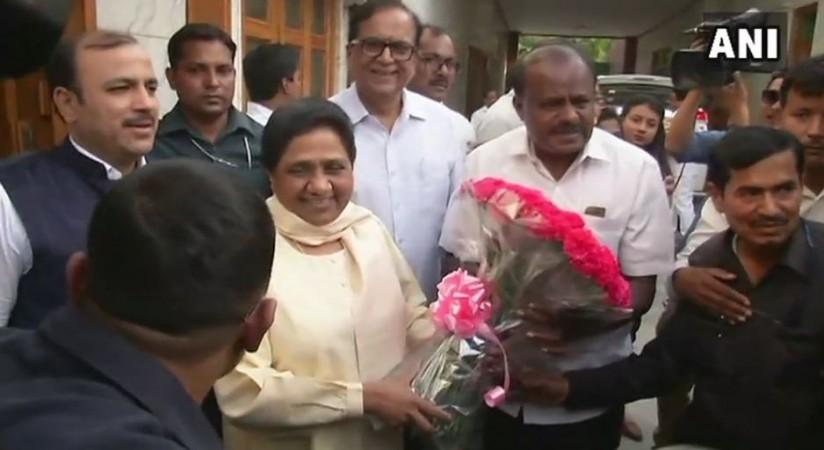
The gap between the winner and the runner-up in the poll-bound Madhya Pradesh has traditionally been between two and four per cent. This means, a power-sharing pact between the Bahujan Samaj Party (BSP) and Congress would have been to drive out BJP, which is in power for the last 15 years.
In the last 20 years, BSP has polled a steady seven per cent vote share in MP. In the 1998 Assembly elections, BSP had bagged the highest number of 11 seats. Ten years later, in the 2008 Assembly elections, BSP's tally came to seven with a rise in its vote percentage.
In the 2013 assembly elections, BSP had won four seats, while the vote share difference between BJP and Congress was 8.5 per cent. BSP's vote share was 6.29 per cent in the polls.
Going by the numbers, it is apparent that the alliance between BSP-Congress could have made the road smooth to derail plan of BJP coming back to power for the fourth consecutive term.
But after BSP supremo Mayawati decided not to form an alliance with Congress in MP, the picture of Congress aiming to cash in on anti-incumbency and end its 15-year 'vanvaas' has turned hazy.
"I feel that Sonia and Rahul's intentions for alliance are honest. But, Digvijaya Singh is sabotaging this. He does not wish for the alliance," Mayawati said while announcing not to form an alliance with Congress in Madhya Pradesh.
However, the top Congress leaders contend that the BSP was demanding more seats than it deserved, which did not sit well with Congress.
"I don't think it's a setback. Even the smallest Bahujan Samaj Party worker will understand the implications of this and know how to exercise his option," Kamal Nath, the Congress chief of Madhya Pradesh said.
He maintained that BSP not forming an alliance with Congress will not impact in their vote share. "We will confidently fight the upcoming polls in Madhya Pradesh and Rajasthan. I have spoken to Akhilesh Yadav regarding an alliance in MP," Kamal Nath said.
Senior BSP leaders contend that the logic that compelled Mayawati not to join hands with Congress in three poll-bound states - Madhya Pradesh, Chhattisgarh and Rajasthan - is its belief that improving its UP vote bank is important to grab power at the Centre in the next general election slated to take place in 2019.

















